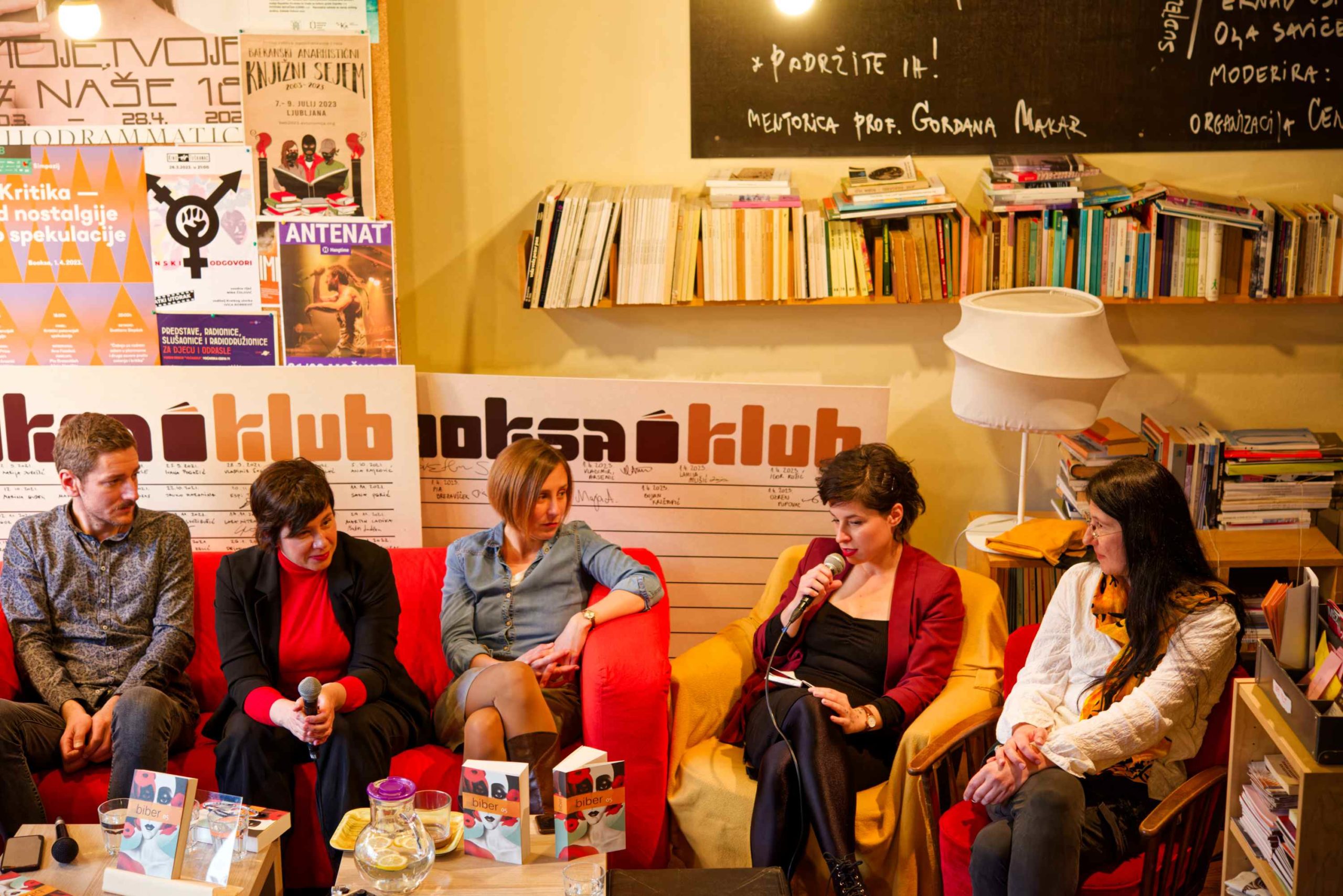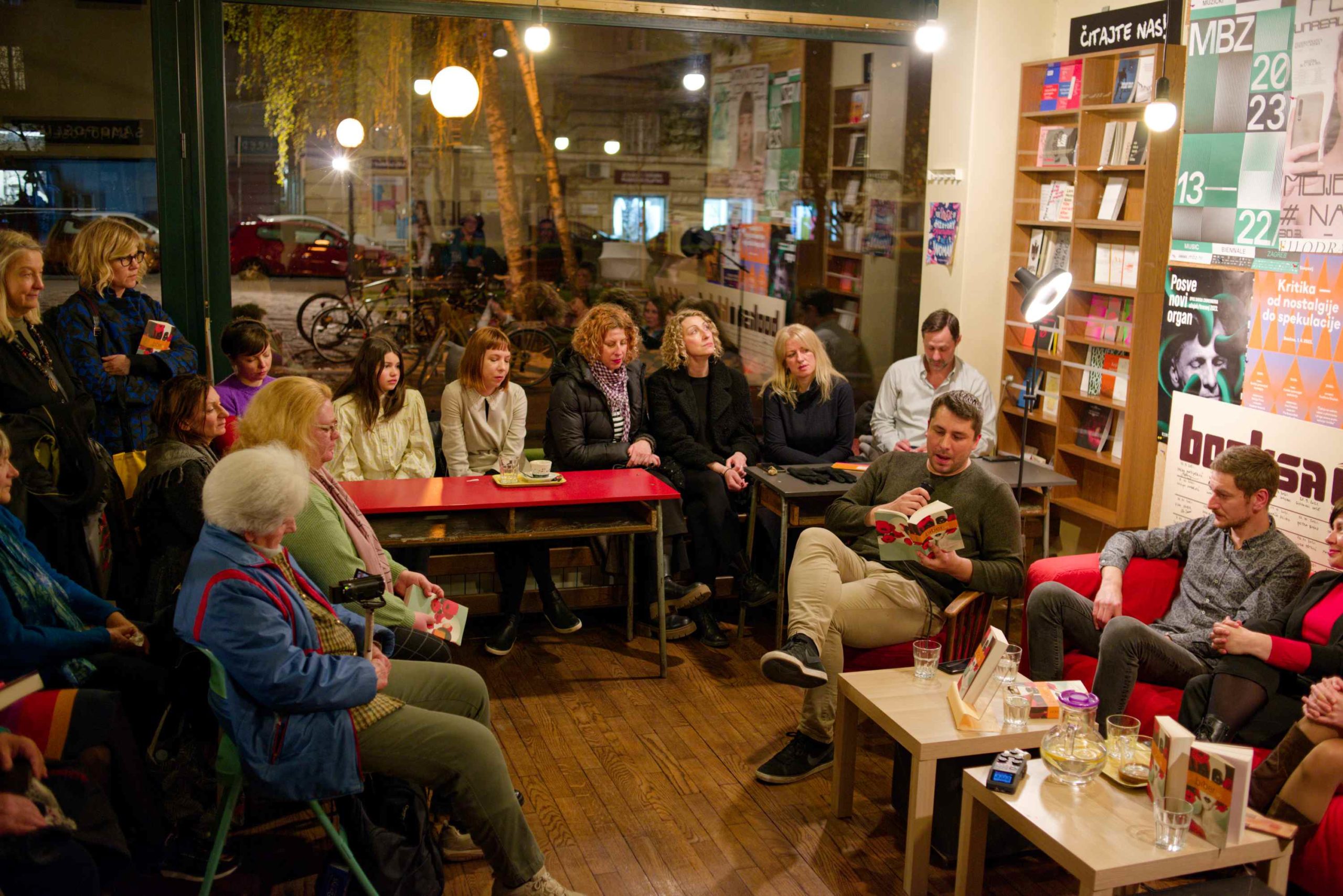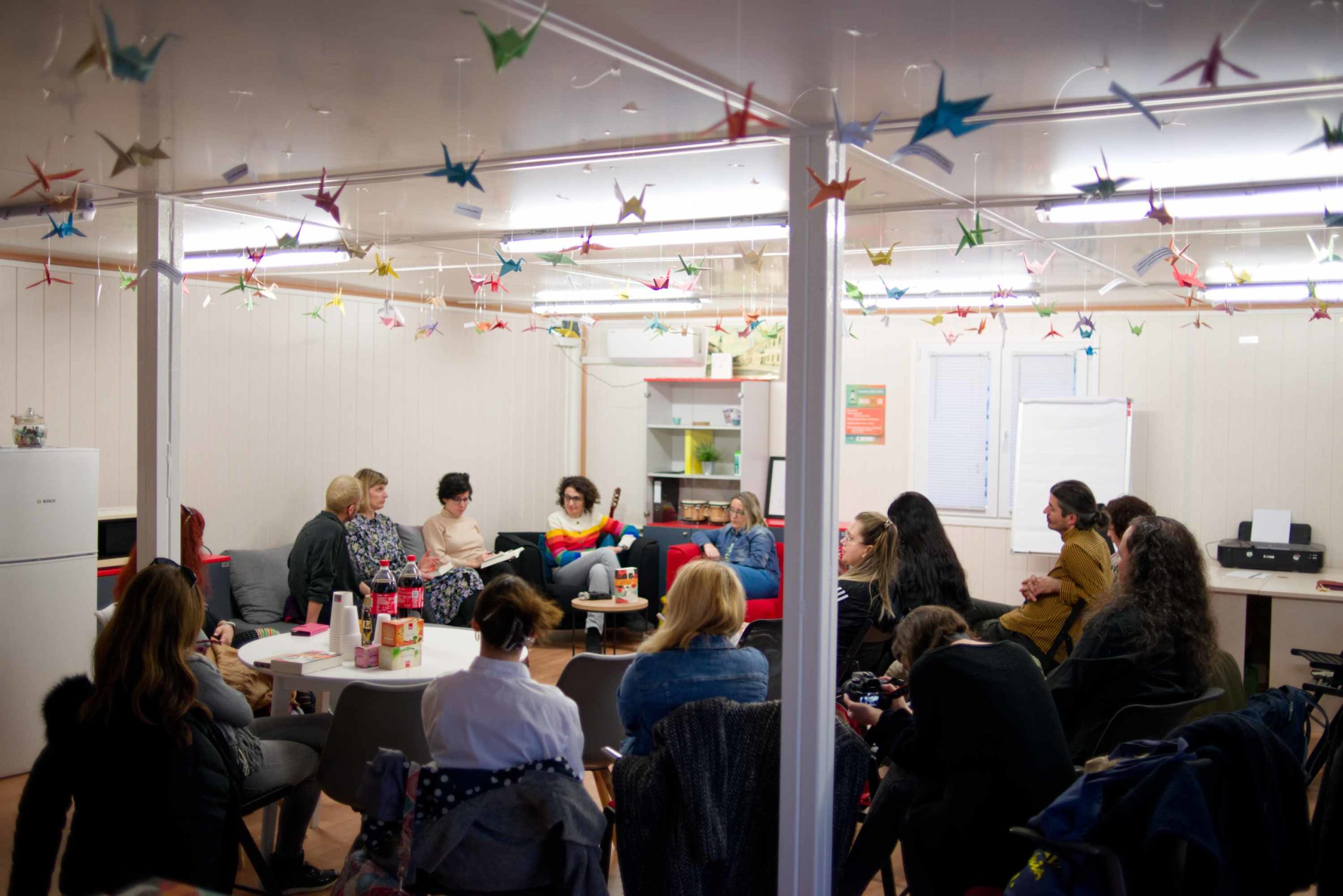The multilingual short story collection from the regional Biber 05 contest was promoted in Zagreb and Petrinja on 5 and 6 April 2023.
The promotion in Zagreb was hosted by the Booksa Literary Club and Ana Kutleša from Zagreb, Miloš Perišić from Aranđelovac, and Ernad Osmić from Brčko, all authors of published and prize-winning stories, took part. Monika Herceg, who won first prize in the third Biber contest, was the moderator. Ivana Franović from the Biber Team and Olja Savičević Ivančević from the jury spoke about the contest itself. The event was organised by the Biber Team of the Centre for Nonviolent Action Sarajevo-Belgrade in cooperation with the Croatian Writers’ Association.
Biber is a short story contest for engaged stories in Albanian, Macedonian, Bosnian, Croatian, Serbian and Montenegrin. The theme of the competition is reconciliation in the context of the legacy left behind by the wars and violence in the countries of former Yugoslavia, but also eligible are stories that can contribute to better understanding among people, reducing hatred and dismantling prejudice, anti-war stories, stories about dealing with the past, deconstructing images of the enemy, about empathy, brave stories that dare walk in the “enemy’s” shoes, stories that push boundaries and open up the way to build a more stable, safer and freer future for all.
“The idea for the Biber contest originated at one of our peace education programmes. We were taken aback by the number of entries in the first contest. Since 2015, the interest has not waned,” said Ivana Franović from the Biber Team, and Olja Savičević Ivančević chimed in to say, “Where there is no official political will for reconciliation, that’s where we step in,” and added, “What I found special about the stories in the Biber contest was the ability of authors to walk in someone else’s shoes, not necessarily of the enemy, but, for instance, female authors wrote very convincingly from a male point of view.”

Remembering her childhood in Rijeka, Ana Kutleša reflected on one of the motifs of her story “Doba linjanja” [Moulting Season], that the names we bear, and the attempts to discern our belonging based on them, can often lead to misunderstandings.
“I’m glad there’s a contest taking an engaged approach to literature. It’s important to write in a way that reflects a faith in writing being able to bring about change,” said Monika Herceg.
Ernad Osmić has had his short stories published in two Biber collections. He believes the short story is the best form for engaged literature, because even those who have no time to read will find time for a short story.
“For a long time, I thought literature was something you invented, but then I realised literature, poetry is not invented, it is observed, and it’s important that we read so that we can observe when something is happening to us.”
Miloš Perišić explained that his short story “Reči” [Words], which won third prize, was part of an unpublished novel.
“It may be selfish, but I developed the story into a novel so as not to forget it, or Neda, or the journeys, or the pain. It was important for me to convey the impression of transience and speed, and that the emotion I have remains unchanged.”

In Petrinja, the multilingual collection was promoted by Tena Lončarević from Županja and Srđan Miljević from Belgrade, whose stories are included in the collection. Monika Herceg was the moderator, and Lejla Kalamujić from the jury and Katarina Milićević from the Biber Team also took part. The event was organised in cooperation with the IKS Association from Petrinja at the Community Cultural Centre.
Introducing his story “Rat je ružna reč” [War is a Bad Word], Srđan Miljević pointed out, “In 1991, I was starting school. And at that time there were two things I just couldn’t get my head around: death and war. This story is an homage to my neighbour who was like a second grandmother to me and who died because she could not bear the news of the war, whose life principles I wanted to preserve.”
Tena Lončarević spoke about how difficult it was to be nice and polite during the war, how difficult it was to maintain humanity, and added, “We can hate each other when we don’t see each other, but when we come face to face, when we talk, that hatred becomes impossible. The most valuable aspect of literature is when we can view things from a completely different angle.”
Speaking about the consequences of war, but also about the role and potential of engaged literature, Katarina Milićević said, “When you read a story about a child forced to leave her home and having to choose the things she will take with her, about making those choices, you don’t wonder about that child’s nationality. I can see myself as the mother of that child. A lot of culture has been used and abused to fill cannons and move tanks.”
Lejla Kalamujić, one of the three jury members selecting the stories for the collection, said, “One of the prevalent literary themes is the lack of love. When the war ended, the hatred infiltrated everything else. And these stories each touch upon that lack of love. If there is funding, there will be enough stories for Biber to keep publishing for 50 more years.”
Five collections of short stories from five Biber contests have been published to date. All the stories in the collections are published in their original language, but also in translation into the other two. One selection of stories was translated into English and published in a special collection.
The electronic editions of all the collections can be downloaded for free from the Biber website.
After Zagreb and Petrinja, the Biber 05 collection will also be promoted in Bitola (25 April) and Travnik (24 May), and the sixth Biber competition will be announced later this year.
